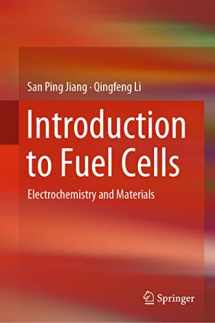
Introduction to Fuel Cells: Electrochemistry and Materials
Book details
Summary
Description
This book covers essential electrochemistry and materials science content and provides an extensive collection of examples in order to bridge the gap between engineering students’ basic knowledge and the concrete skills they need to handle practical problems in fuel cells. The book also has a special chapter on laboratory experiments with fuel cells is also included, which can be conducted in conjunction with classroom teaching. Each chapter includes problems and exercises.
The book starts with an introduction to the basic thermodynamics and electrochemistry principles and techniques in fuel cells. It subsequently discusses fuel cell operation principles, electrocatalysts, electrode materials, cell and system configuration and technologies in low-temperature fuel cells such as alkaline fuel cells and proton exchange membrane fuel cells, and in high-temperature fuel cells including solid oxide, and molten carbonate fuel cells. Other energy conversion and storage technologies such as supercapacitors, batteries, and electrolysis are also covered.
The book provides students with an engineering background essential information on the basic thermodynamics, electrochemistry and materials of fuel cells, the most efficient and environmentally friend energy conversion technologies, all in a single book.


We would LOVE it if you could help us and other readers by reviewing the book
Book review



